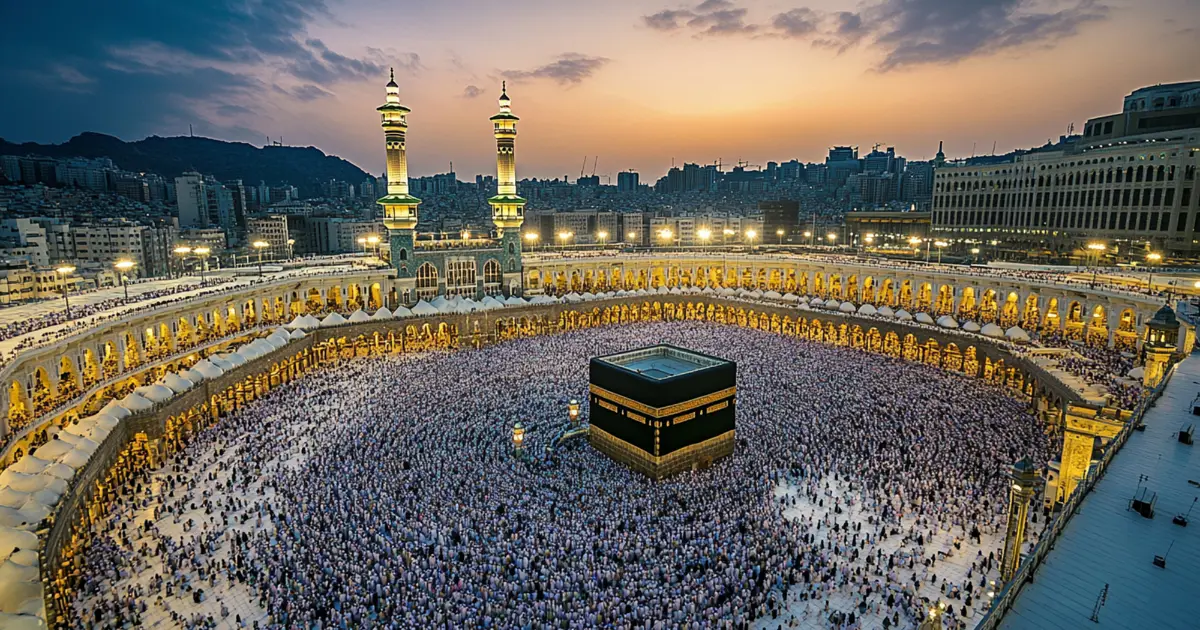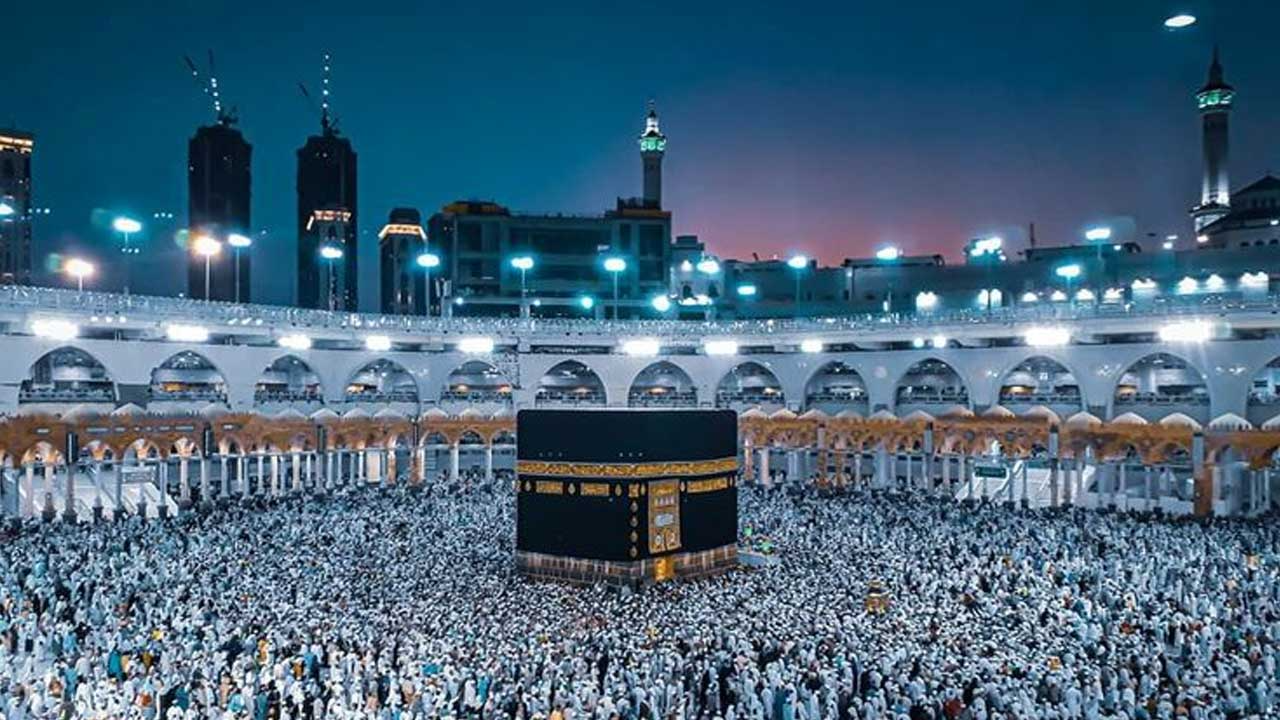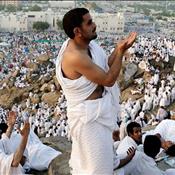
Embarking on the spiritual journey of Hajj or Umrah is a life-changing experience for Muslims worldwide. For first-timers, the journey can be both exhilarating and overwhelming. This article aims to provide a comprehensive guide, sharing stories and experiences from pilgrims, practical tips and a suggested schedule to help you prepare for this sacred journey.
Table of Contents
- Introduction to Hajj and Umrah
-
Preparing for the Journey
- Spiritual Preparation
- Physical Preparation
- Documentation and Logistics
-
Stories and Experiences from Pilgrims
- A First-Timer’s Account of Hajj
- Umrah: A Journey of Reflection
-
Suggested Schedule for Hajj and Umrah
- Hajj Schedule
- Umrah Schedule
-
Practical Tips for First-Timers
- What to Pack
- Health and Safety Tips
- Cultural Etiquette
- Conclusion
1. Introduction to Hajj and Umrah
Hajj
Hajj is one of the five pillars of Islam and is obligatory for every Muslim who is physically and financially able to undertake the journey at least once in their lifetime. It occurs during the Islamic month of Dhu al-Hijjah and involves a series of rituals performed in and around Mecca.
Umrah
Umrah, often referred to as the "lesser pilgrimage," can be performed at any time of the year. While it is not obligatory, it is highly recommended and holds significant spiritual value. The rituals of Umrah are simpler and shorter compared to Hajj.
2. Preparing for the Journey
Spiritual Preparation
- Intention (Niyyah): The first step is to make a sincere intention to perform Hajj or Umrah solely for the sake of Allah.
- Knowledge: Familiarize yourself with the rituals and their significance. Reading books, attending seminars, and consulting with knowledgeable individuals can be very helpful.
- Repentance: Seek forgiveness for your sins and strive to improve your character.
Physical Preparation
- Fitness: The journey involves a lot of walking and physical activity. Start a fitness regimen to build stamina.
- Health Check-Up: Visit your doctor for a thorough health check-up and necessary vaccinations.
- Diet: Maintain a healthy diet to ensure you are in good physical condition.
Documentation and Logistics
- Passport and Visa: Ensure your passport is valid for at least six months. Apply for the Hajj or Umrah visa through an authorized travel agent.
- Travel Arrangements: Book your flights and accommodation well in advance. Consider traveling with a reputable tour operator.
- Packing: Make a checklist of essential items, including Ihram clothing, toiletries, medications, and travel documents.
3. Stories and Experiences from Pilgrims
A First-Timer’s Account of Hajj
By Ahmed Khan
"My journey to Hajj was a mix of emotions—excitement, anxiety, and profound spirituality. The moment I entered the state of Ihram, I felt a deep sense of humility and connection to Allah. The Tawaf around the Kaaba was overwhelming; the sight of millions of pilgrims united in worship brought tears to my eyes. Standing at Arafat was the pinnacle of my journey, a day of intense prayer and reflection. Despite the physical challenges, the spiritual rewards were beyond description. Hajj was a transformative experience that I will cherish forever."
Umrah: A Journey of Reflection
By Aisha Malik
"Performing Umrah was a deeply personal and reflective journey for me. The simplicity of the rituals allowed me to focus on my relationship with Allah. The serenity of the Masjid al-Haram and the spiritual ambiance of Mecca provided a perfect setting for self-reflection and prayer. The experience reinforced my faith and reminded me of the importance of gratitude and humility in my daily life."
4. Suggested Schedule for Hajj and Umrah
Hajj Schedule
Day 1: Arrival in Mecca
- Enter the state of Ihram at the Miqat.
- Perform Tawaf al-Qudum (Arrival Tawaf) and Sa'i.
- Settle into your accommodation.
Day 2: Day of Tarwiyah
- Spend the day in prayer and reflection.
- Prepare for the journey to Mina.
Day 3: Day of Arafat
- Travel to Arafat and spend the day in prayer and supplication.
- After sunset, proceed to Muzdalifah for Maghrib and Isha prayers.
- Collect pebbles for the stoning ritual.
Day 4: Day of Eid al-Adha
- Perform the stoning of the Jamarat in Mina.
- Sacrifice an animal (Qurbani).
- Shave or trim your hair (Halq or Taqsir).
- Perform Tawaf al-Ifadah and Sa'i.
Day 5-7: Days of Tashreeq
- Continue the stoning of the Jamarat.
- Spend time in prayer and reflection.
- Perform farewell Tawaf (Tawaf al-Wada) before leaving Mecca.
Umrah Schedule
Day 1: Arrival in Mecca
- Enter the state of Ihram at the Miqat.
- Perform Tawaf and Sa'i.
- Settle into your accommodation.
Day 2: Visit Medina
- Travel to Medina and visit the Prophet’s Mosque (Masjid al-Nabawi).
- Spend time in prayer and reflection.
Day 3: Return to Mecca
- Perform additional Tawaf and Sa'i if desired.
- Spend time in prayer and reflection.
Day 4: Departure
- Perform farewell Tawaf before leaving Mecca.
5. Practical Tips for First-Timers
What to Pack
- Ihram Clothing: Two sets of white, seamless cloth for men; modest clothing for women.
- Comfortable Footwear: Sturdy sandals or shoes for walking.
- Toiletries: Unscented soap, toothpaste, and other personal care items.
- Medications: Basic first aid kit and any prescribed medications.
- Travel Documents: Passport, visa, flight tickets, and accommodation details.
Health and Safety Tips
- Stay Hydrated: Drink plenty of water to avoid dehydration.
- Rest: Take regular breaks to rest and avoid exhaustion.
- Hygiene: Maintain personal hygiene to prevent illnesses.
- Safety: Be aware of your surroundings and follow the instructions of authorities.
Cultural Etiquette
- Respect Local Customs: Dress modestly and behave respectfully.
- Patience: Be patient and courteous with fellow pilgrims.
- Charity: Give to those in need and help fellow pilgrims when possible.
6. Conclusion
The journey of Hajj and Umrah is a profound spiritual experience that leaves a lasting impact on the hearts and minds of pilgrims. For first-timers, proper preparation and a clear understanding of the rituals can make the journey more meaningful and less daunting. By learning from the experiences of others and following practical tips, you can ensure a smooth and spiritually enriching pilgrimage. May Allah accept your efforts and grant you a safe and blessed journey.
Image Suggestion: Include images of the Kaaba, pilgrims performing Tawaf, the plains of Arafat, and the Prophet’s Mosque in Medina to visually enhance the article.
Bullet Points Summary:
- Hajj is obligatory for Muslims who are physically and financially able.
- Umrah is a recommended pilgrimage that can be performed at any time of the year.
- Spiritual and physical preparation is crucial for a successful pilgrimage.
- Pilgrims share transformative experiences of Hajj and Umrah.
- Follow a suggested schedule to perform the rituals correctly.
- Pack essentials, stay hydrated, and respect local customs for a smooth journey.
By following this guide, first-time pilgrims can embark on their journey with confidence and devotion, ensuring a fulfilling and spiritually uplifting experience.
;More Travel News
-
 04-Mar-2020Due to Coronavirus Saudi Arabia bans its residents from Umrah
04-Mar-2020Due to Coronavirus Saudi Arabia bans its residents from Umrah -
 24-Mar-2022Permission of Itikaf after two year hiatus at the Two Holy Mosques
24-Mar-2022Permission of Itikaf after two year hiatus at the Two Holy Mosques -
 20-Mar-2025Service Charges of Munazzamat for Hajj 2025
20-Mar-2025Service Charges of Munazzamat for Hajj 2025 -
 15-Jul-2020Spend a Beautiful Week in Naran Kaghan Valley With Best Tour Package
15-Jul-2020Spend a Beautiful Week in Naran Kaghan Valley With Best Tour Package -
 26-Mar-2025How to Find the Cheapest Flights for Your Umrah Trip
26-Mar-2025How to Find the Cheapest Flights for Your Umrah Trip -
 01-Feb-2022Top Airports in Pakistan in terms of Passenger Traffic
01-Feb-2022Top Airports in Pakistan in terms of Passenger Traffic -
 25-Jun-2021Top 10 Destinations In Turkey And Why Pakistanis Would Like Them
25-Jun-2021Top 10 Destinations In Turkey And Why Pakistanis Would Like Them -
 11-Nov-2019How Many People Do Hajj Annually
11-Nov-2019How Many People Do Hajj Annually
